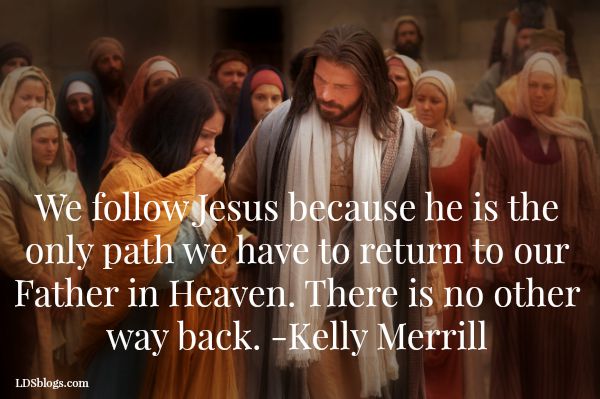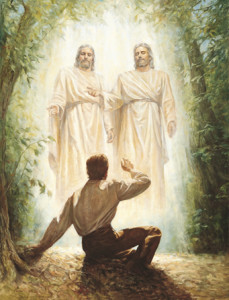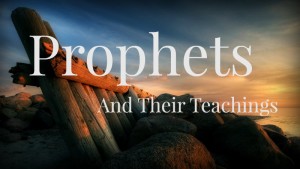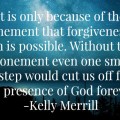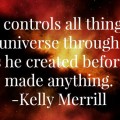This article was previously published on mormonbasics.com
Let’s start with some basic definitions, after all, if we are going to use terms to create a point of view, everyone needs to have the same understanding of the terms for a common point of view to emerge.
This first definition of God comes from a post by a member of Catholic Answers at forums.catholic.com. The question was asked, “What is the definition of God?” This was the fullest explanation in the whole thread.
We cannot know God by definition as He cannot be quantified, encompassed, or limited. We can only know God by relationship. He is Love. He is forgiveness. He is slow to anger and long on patience. He is “…Father, . . . Son and . . . Holy Spirit, as it was in the beginning is now and ever shall be”. He is “I AM”. He is a burning bush that is not consumed. He is a pillar of fire above a tent in the desert. He is an engineer who designs arks and carves His words on stone. He creates gravity, which science knows exists, but cannot explain the actual cause. He sends the spark into the seed so it germinates, for which scientist, still cannot figure out where the “spark of life” in a seed starts or how. He feeds the world using a tiny little honey bee.
At beliefnet.com the conservative Protestant definition of God is as follows:
Belief in Deity
Most Conservative Protestants believe God is an incorporeal, omnipresent spirit–a Trinity of the Father (God), the Son (Christ), and the Holy Spirit that comprises one God Almighty.
Incarnations
Jesus Christ is God’s only incarnation. He is the Son of God and God, both fully divine and fully human, part of the Trinity of the Father, the Son, and the Holy Spirit, which comprises one God Almighty.
Are we confused yet? Did you know that the doctrine of the Trinity was not adopted until several hundred years after Christ was crucified? The final wording and doctrine of the Trinity was not finally settled upon until almost 1000 years after Christ’s birth, and disputes about the wording have kept the Catholic and Eastern Orthodox churches apart for a thousand years. The doctrine of the Trinity is not taught anywhere in the Bible. The concept of the Trinity is a man-made doctrine, it was not taught by Christ or any of the Apostles.
Definition of God
Rather than me trying to tell you what the character and nature of God is, and then have to send you off to do a bunch of reading that will tell you the same thing, I have decided to include a healthy chunk of information from the King Follett Discourse. In the 19th century, King was a man who was digging a well and the well collapsed on him, killing him. The prophet Joseph Smith was asked to speak at Bro. Follett’s funeral. Here are some of the comments Joseph made at that funeral regarding the nature and character of God and man, and the importance for all of us to understand who we worship if we are to ever get back into his presence. Please note that I have put the paragraphs in the order they appear in the original talk, but they are not necessarily consecutive paragraphs. You are welcome to read the whole discourse if you would like to read the missing information (I have included the link to the whole discourse at the bottom of the quote). I have included just the most important parts that deal with our subject on the nature of God and man.
I want to go back to the beginning and so lift your minds into a loftier sphere, a more exalted understanding than what the human mind generally understands. I want to ask this congregation, every man, woman and child, to answer the question in his own heart what kind of a being God is. What kind of a being is God? Does any man or woman know? Have any of you seen him, heard him, communed with him? Here is the question, perhaps, that will from this time forth occupy your attention. The apostle [John] says, “This is life eternal”–to know God and Jesus Christ, whom he has sent. If any man, not knowing what kind of a being God is, inquires to know if the declaration of the apostle is true–and searches diligently his own heart–he will admit that he has not eternal life; for there can be no eternal life on any other principle.
First, God himself, who sits enthroned in yonder heaven, is a man like one of you. That is the great secret. If the veil were rent today and you were to see the great God who holds this world in its orbit and upholds all things by his power, you would see him in the image and very form of a man; for Adam was created in the very fashion and image of God. He received instruction from and walked, talked, and conversed with him as one man talks and communes with another.
In order to understand the subject of the dead for the consolation of those who mourn for the loss of their friends, it is necessary they should understand the character and being of God; for I am going to tell you how God came to be God. We have imagined that God was God from all eternity. [That he was not is an idea] incomprehensible to some. But it is the simple and first principle of the gospel-to know for a certainty the character of God, that we may converse with him as one man with another. God himself, the Father of us all, dwelt on an earth the same as Jesus Christ himself did, and I will show it from the Bible.
… What did Jesus say? … Jesus said, “As the Father hath power in himself, even so hath the Son power.” To do what? Why, what the Father did. The answer is obvious–in a manner to lay down his body and take it up again. Jesus, what are you going to do? To lay down my life as my Father did, and take it up again. If you do not believe it, you do not believe the Bible …
We say that God himself is a self-existing God. Who told you so? It is correct enough, but how did it get into your heads? Who told you that man did not exist in like manner upon the same principles? (Refers to the old Bible.) How does it read in the Hebrew? It doesn’t say so in the Hebrew; it says God made man out of the earth and put into him Adam’s spirit, and so he became a living body.
The mind of man is as immortal as God himself. I know that my testimony is true; hence, when I talk to these mourners, what have they lost? Their friends and relatives are separated from their bodies for only a short season; their spirits existed coequal with God, and they now exist in a place where they converse together, the same as we do on the earth. Is it logic to say that a spirit is immortal and yet has a beginning? Because if a spirit has a beginning, it will have an end. That is good logic. I want to reason further on the spirit of man, for I am dwelling on the spirit and body of man–on the subject of the dead. I take my ring from my finger and liken it unto the mind of man, the immortal spirit, because it has no beginning. Suppose I cut it in two; as the Lord lives, because it has a beginning, it would have an end. All the fools and learned and wise men from the beginning of creation who say that man had a beginning prove that he must have an end. If that were so, the doctrine of annihilation would be true. But if I am right, I might with boldness proclaim from the house tops that God never did have power to create the spirit of man at all. God himself could not create himself. Intelligence exists upon a self-existent principle; it is a spirit from age to age, and there is no creation about it. Moreover, all the spirits that God ever sent into the world are susceptible to enlargement.
The first principles of man are self-existent with God.
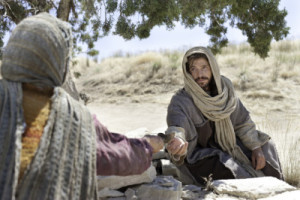 This was first published in the Times and Seasons, 5 (15 August 1844): 612-17. You can find the full discourse at mldb.byu.edu/follett.htm.
This was first published in the Times and Seasons, 5 (15 August 1844): 612-17. You can find the full discourse at mldb.byu.edu/follett.htm.
I suggest you read that passage several times and write down your questions, because you should have many of them after reading it. Feel free to ask any of your questions you don’t get answered in the comments section below. I will address some of the more obvious statements made by Joseph Smith here.
Recap
1. God is a man, glorified and resurrected, as we learned from the example of his son, Jesus Christ, who said that he was sent here to do what he had seen his father do and he became resurrected and glorified.
2. Mankind is also eternal in nature, having always existed, and will always exist, just as God has and will always exist. If we were not eternal in nature then when we die we will be forever dead. We will cease to exist. You don’t create something eternal from something temporary. If something has a beginning then it also has an end. Eternal things have always been and will always be, that is what makes them eternal. So man can only be eternal hereafter if we were eternal before. This means that we are not just pieces of God’s thoughts that spring into existence when we “occur” to him. If God knows the end from the beginning, as He says he does then he has always known us, so we must have always existed in some form.
3. We have the ability to be enlarged, meaning we can change and become more than we currently are.
The Mormon or Latter-day Saint view of God is all wrapped up in how we view ourselves as well. To us God is not some undefinable being, without body, parts or passions. To us God is literally our Father, our creator. He was once like us. He came to an earth, was tested, died, was resurrected, and progressed and improved and eventually became God. We, as his children have the same capacity to follow in our Heavenly Father’s footsteps. God’s only physical son, Jesus came to work out the atoning sacrifice that was needed for the rest of us to be able to return to our Father. So Jesus does whatever our Father needs him to do to help save the rest of God’s children. We in turn follow Jesus, because he is the only path we have to return to our Father in Heaven. There is no other way back. Christ himself declared that many times. I will talk more about God’s family and His plan for his children in future posts.
Please note that the Mormon view of God, and man’s relationship to him elevates the nobility and capacity of mankind far above anything taught anywhere else on earth.
About Kelly P. Merrill
Kelly Merrill is semi retired and writes for https://gospelstudy.us. He lives with his wife in Idaho. His strength is being able to take difficult to understand subjects and break them down into understandable parts. He delights in writing about the gospel of Christ. Writing about the gospel is his personal missionary work to the members of the Church and to those of other faiths who are wanting to know more about Christ's gospel and His Church.

